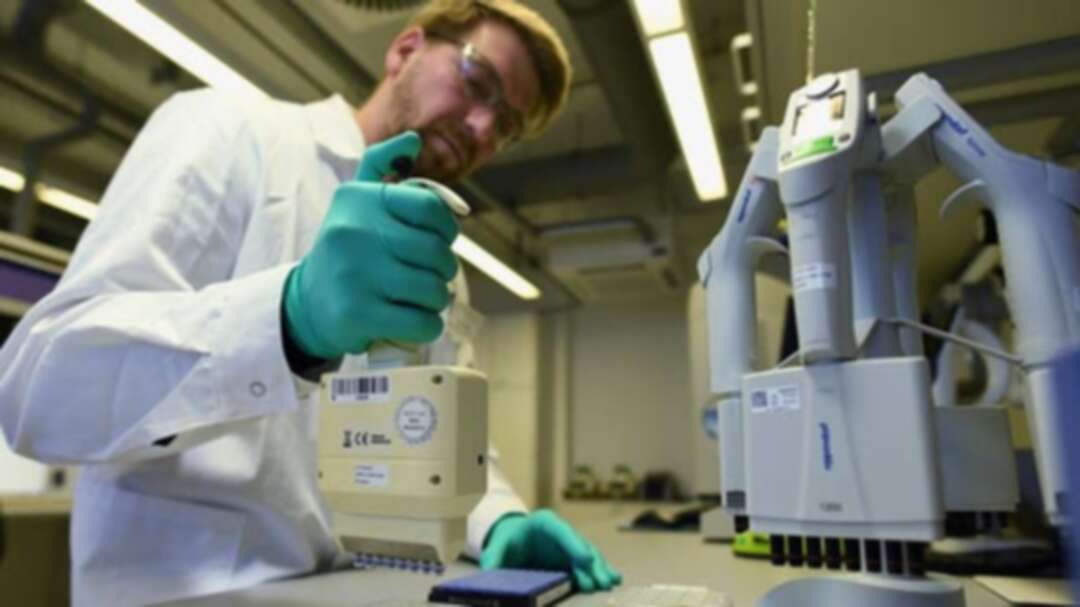-
Coronavirus: Chloroquine can be toxic, not proved to work

Chloroquine – the commonly used malaria drug that has been touted as symptomatic relief for coronavirus patients – can be toxic if used improperly.
Around the world, chloroquine, which is also used to treat lupus and rheumatoid arthritis, is being examined, and used in some places, to treat symptoms of the novel coronavirus.
Between malaria and COVID-19, shared symptoms include a fever; coughing; difficulty breathing, tiredness, and chills, profuse sweating, and headaches – or flu symptoms. Chloroquine is also used to treat Ebola and SARS symptoms, the latter of which belongs to the same family of coronaviruses that COVID-19 belongs. In Lagos, Nigeria, hospitals are now treating patients who have misused chloroquine to treat coronavirus. Chloroquine was banned in Nigeria in 2005, but many households still have tablets of the drug, the BBC reported.
https://twitter.com/Oreoluwa_Finnih/status/1241050146374377474
The Lagos government has warned of the severe side effects of the drug and asked that Nigerians not take it without medical supervision. There are an estimated 100 million malaria cases and over 300,000 deaths in Malaria each year in Nigeria, according to US State Department data from 2011.
https://twitter.com/followlasg/status/1241055042456686594
The World Health Organization has not approved the use of chloroquine for coronavirus symptomatic treatment
https://twitter.com/NCDCgov/status/1241006420419641345
Chloroquine in China
The drug was initially used in China to treat symptoms or coronavirus, but the China Health Commission revised its dosage of chloroquine at the end of February.
It cannot be given to pregnant women as it can cause birth defects in babies, those with heart disease, terminal liver, and renal disease, retina and hearing loss, and patients on antibiotics, such as azithromycin and steroid.
Short term side-effects include nausea, diarrhea, and tinnitus, and long-term effects can irreversibly impair eyesight.
One woman in Wuhan took 1.8 grams of the drug and developed malignant cardiac arrhythmic, which can cause sudden death. She ordered the drugs online when she believed that she had coronavirus, but she tested negative.
Chloroquine in the US
In the United States, President Donald Trump asked the US Food and Drug Administration (FDA) to look into chloroquine to fight coronavirus.
“The FDA has been working closely with other government agencies and academic centers that are investigating the use of the drug chloroquine,” read a press release from the agency.
The FDA is currently studying a way to make the drug available for emergency use, but in a way that gives the government data about whether it is safe and effective.
https://twitter.com/mrvndn/status/1241046275249881089
Dr. Anthony Fauci, the director of the National Institute of Allergy and Infectious Diseases at National Institutes of Health, when asked if hydroxychloroquine, a derivative of chloroquine, could work to treat coronavirus patients, Fauci responded “No. The answer is no,” while answering a reporter’s question.
“The information that you're referring to specifically is anecdotal. It was not done in a controlled clinical trial, so you really can't make any definitive statement about it,” AP reported Fauci as saying.
Chloroquine origins
Chloroquine was first developed in the 1940s to treat malaria. In 1949, it was approved by the FDA for this specific use.
A 2005 study found that chloroquine could prevent the spread of the SARS-CoV, commonly known as SARS, virus in primate cells grown in a lab. The novel coronavirus or SARS-CoV-2 is from the same family of coronaviruses as SARS-CoV, and treatments for the novel coronavirus could be similar to those used for its predecessor.
Waiting for a vaccine
Most experts have said a coronavirus market-ready vaccine is likely one to two years away. So others have tried to use existing medications as alternatives. Malaria drugs are one such option; others include bacteria and other rheumatoid arthritis drugs, HIV drugs, and redeliver, which is an anti-viral medication developed as a treatment for Ebola and was successful in treating monkeys infected with MERS.
source: Lauren Holtmeier levant
You May Also Like
Popular Posts
Caricature
BENEFIT Sponsors BuildHer...
- April 23, 2025
BENEFIT, the Kingdom’s innovator and leading company in Fintech and electronic financial transactions service, has sponsored the BuildHer CityHack 2025 Hackathon, a two-day event spearheaded by the College of Engineering and Technology at the Royal University for Women (RUW).
Aimed at secondary school students, the event brought together a distinguished group of academic professionals and technology experts to mentor and inspire young participants.
More than 100 high school students from across the Kingdom of Bahrain took part in the hackathon, which featured an intensive programme of training workshops and hands-on sessions. These activities were tailored to enhance participants’ critical thinking, collaborative problem-solving, and team-building capabilities, while also encouraging the development of practical and sustainable solutions to contemporary challenges using modern technological tools.
BENEFIT’s Chief Executive Mr. Abdulwahed AlJanahi, commented: “Our support for this educational hackathon reflects our long-term strategic vision to nurture the talents of emerging national youth and empower the next generation of accomplished female leaders in technology. By fostering creativity and innovation, we aim to contribute meaningfully to Bahrain’s comprehensive development goals and align with the aspirations outlined in the Kingdom’s Vision 2030—an ambition in which BENEFIT plays a central role.”
Professor Riyadh Yousif Hamzah, President of the Royal University for Women, commented: “This initiative reflects our commitment to advancing women in STEM fields. We're cultivating a generation of creative, solution-driven female leaders who will drive national development. Our partnership with BENEFIT exemplifies the powerful synergy between academia and private sector in supporting educational innovation.”
Hanan Abdulla Hasan, Senior Manager, PR & Communication at BENEFIT, said: “We are honoured to collaborate with RUW in supporting this remarkable technology-focused event. It highlights our commitment to social responsibility, and our ongoing efforts to enhance the digital and innovation capabilities of young Bahraini women and foster their ability to harness technological tools in the service of a smarter, more sustainable future.”
For his part, Dr. Humam ElAgha, Acting Dean of the College of Engineering and Technology at the University, said: “BuildHer CityHack 2025 embodies our hands-on approach to education. By tackling real-world problems through creative thinking and sustainable solutions, we're preparing women to thrive in the knowledge economy – a cornerstone of the University's vision.”
opinion
Report
ads
Newsletter
Subscribe to our mailing list to get the new updates!






















